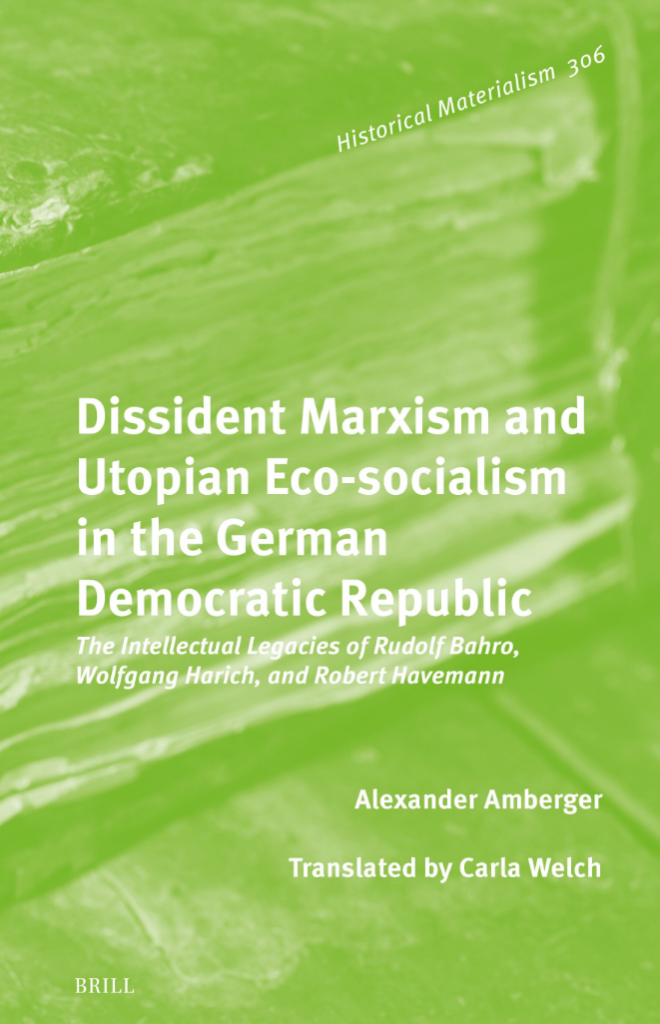Alexander Amberger
Biographical Note
Readership
Eco-socialists, readers interested in Marxist approaches to ecology, historians of the DDR and German socialism in the post-war period, scholars of political utopia and utopianism.
Table of Contents
Foreword
Acknowledgements
Abbreviations
1 Introduction
1 Research Question and State of the Art
2 The Concept of Political Utopia
3 Political Utopia Since the 1960s
4 Time, Place and Actors
5 Political Utopia and the GDR
6 Meadows and the GDR
2 Communism without Growth?: Wolfgang Harich and the Eco-Dictatorship
1 Harich and His Era
2 The Primacy of Nature: Harich’s Return to Archistic Utopia
3 How Communism without Growth? Was Received
3 Rudolf Bahro’s The Alternative in Eastern Europe
1 Bahro’s Life: Exploring the Realms of the Possible
2 The Origins of The Alternative
3 The Alternative
4 Bahro and Utopianism
5 Is The Alternative Really an Option?
4 Tomorrow: Robert Havemann in Pursuit of the Third Way
1 The Life of Robert Havemann
2 The Origins of Tomorrow
3 Havemann’s Classical Utopia
4 Havemann’s Utopian Ideas and Their Place in Utopian History
5 The Reception of Tomorrow in the East and the West
5 Conclusions


